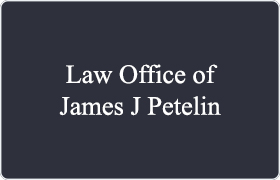Kings Beach Felony Lawyer, California
Sponsored Law Firm
-
 x
x

Click For More Info:
-
Law Office of James J Petelin
1550 Humboldt Road, Suite 4 Chico, CA 95928» view mapDivorce & Family Law Effective, Client-Focused Representation
James Petelin is a practicing attorney in the state of California who focuses on Family Law.
800-943-9701
Warning! No lawyers found in this specified area.
Not enough matches for Kings Beach Felony lawyer.
Below are all Kings Beach Criminal lawyers.
 James Petelin Chico, CA
James Petelin Chico, CA AboutLaw Office of James J Petelin
AboutLaw Office of James J Petelin Practice AreasExpertise
Practice AreasExpertise
